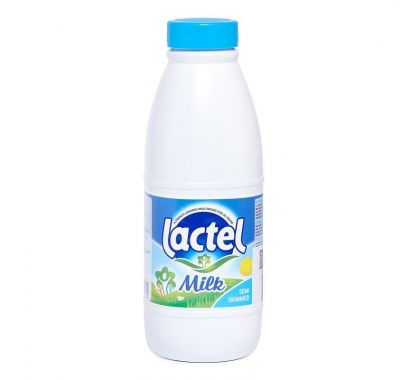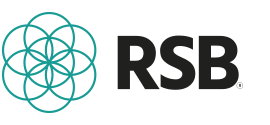INEOS and LACTEL partner to produce the world’s first HDPE Milk Bottles from advanced recycling

RSB Certified INEOS and Organic Milk producer LACTEL, who also have an RSB certified site through their Montauban plant announce a partnership on advanced recycling packaging for dairy products.
Advanced recycling enables the conversion of waste plastic back to new, high-quality polymers, this in turn is used to produce the Lactel milk bottles.
Advanced recycling technology converts waste plastic back to its basic molecules which are then used in INEOS production sites to include recycled content and replace traditional fossil-based raw materials allowing for circularity within the plastics industry.
LACTEL is the first dairy brand, in collaboration with INEOS, to explore a solution for UHT milk bottles produced with circular polyethylene, derived from post-consumer recycled material and marks an important step for the industry.
Lactel’s Montauban plant was successfully certified against RSB’s ‘Global Advanced Products’ standard in April 2021. The milk bottles produced in this way are compliant with food safety regulations and are fully recyclable.
“This trial production of 140,000 milk bottles, based on HDPE from advanced recycling technology, is a world first and a major step forward for Lactel towards a circular economy. This new innovative product will be used in the Montauban production plant for an initial production run. At Lactel we are extremely excited to bring this new environmental innovation to our iconic milk bottles”explains Anne Charles-Pinault – General Manager Lactel France.
“INEOS is very pleased to progress this partnership with Lactel. Both companies are committed to sustainability and, via advanced recycling, we are able to supply virgin quality polymer from recycled plastic that is ideal for even the most demanding food contact applications like milk. Another big step in the right direction.” said Xavi Cros – CEO INEOS Olefins & Polymers Europe/South.
View INEOS Europe AG (INEOS O&P)‘s RSB Certificate and Audit Summary Report.
View Société Laitière de Montauban‘s RSB Certificate and Audit Summary Report.
Explore all RSB Certificates here.
ABOUT RSB
The Roundtable on Sustainable Biomaterials (RSB) is an international, multi-stakeholder, independent organisation that supports the development of the global bioeconomy through sustainability solutions, certification, innovation and collaborative partnerships.
With credible solutions, global expertise, partners across the spectrum from government to industry and NGOs, and an extremely robust approach to sustainability, RSB is the partner of choice for the bioeconomy as it seeks to combat climate change while also ensuring social development and environmental protection.
Further information can be found on www.rsb.org
ABOUT INEOS
INEOS is the world’s third largest chemical company. It has a turnover of $61bn and employs 26,000 people across 36 businesses, operating 194 sites in 29 countries throughout the world.
INEOS products make a significant contribution to saving life, improving health and enhancing standards of living for people around the world. Its businesses produce the raw materials that are essential in the manufacture of many goods: from paints to plastics, textiles to technology, medicines to mobile phones – chemicals manufactured by INEOS enhance almost every aspect of modern life. Its facilities provide the raw materials and products that meet society’s needs. Its scientific innovations are also helping in the move towards a lower carbon economy. And it is also playing a vital role in everything from reducing plastic waste to creating a more circular economy.
ABOUT LACTEL
Lactel® is a brand of the Lactalis group. For several years, Lactel has been committed to minimise the impact of its packaging on the environment. In addition to being 100% recyclable, Lactel® milk bottles, all of which display the sorting guidelines, are produced directly in the dairy factories, to limit the CO2 emissions caused by transporting empty bottles. This also allows the brand to integrate 30% of plastic from pre-consumer waste, recovered and recycled directly on its production sites. In addition, since its launch 30 years ago, the thickness of the bottle has been reduced. It now weighs 9% less than it did originally, saving the equivalent of 29 million bottles per year. Finally, in 2016, Lactel® was the first brand to use a collation film made of 20% recycled plastic on its entire Lactel® organic range.
